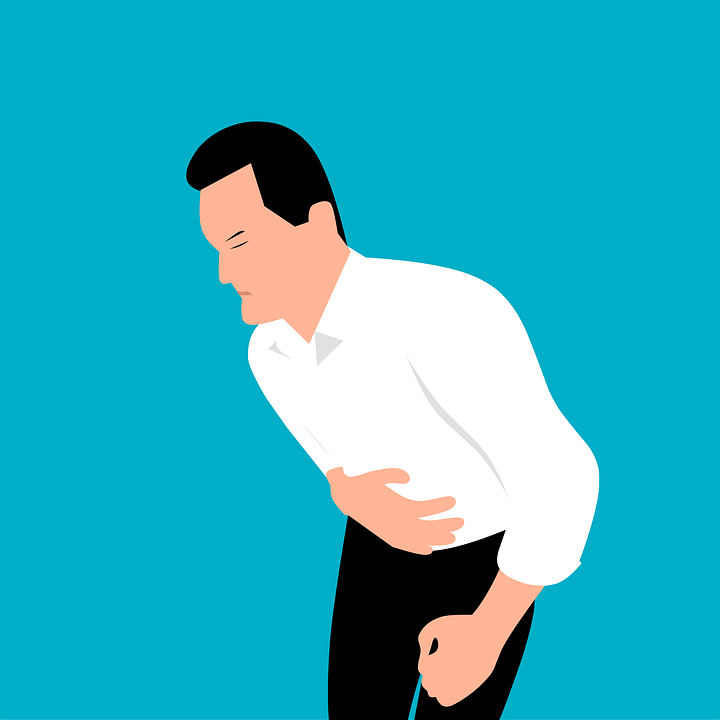What is acid reflux?
Acidity, in the context of human health, typically refers to the excess production of acid in the stomach, leading to various symptoms and discomfort. It is a common condition that many people experience from time to time. The medical term for this condition is “acid reflux” or “Gastroesophageal reflux disease” GERD, when it becomes chronic. It is said that every 3rd person has acid reflux or acidity problem.
Let’s begin with role of stomach acid; –
- Breaks down food.
- Kills harmful bacteria.
- Helps you absorb vitamin B 12 properly.
- Signal other digestive organs to release their juices and enzymes.
The PH of stomach acid also called gastric acid usually ranges from around 1.5 to 2. On an average, we produce about 1.5 liters of a stomach acid daily.
Now, move ahead, we will understand about LES (Lower esophageal sphincter).
It is a ringlike muscle, that joins stomach and esophagus. The LES stays closed except during swallowing, when it allows food to pass from the esophagus into the stomach. Ultimately, LES controls reflux response.

Definition of heart burn:
When acid flows back into esophagus, tissue around esophagus feels the burn as it is delicate, termed as heart bun. Thereafter, nerves around signal pain to your brain.
Heartburn is a symptom caused by,
- Acid reflux
- Stomach ulcers
- Problem with gastric emptying
- Anxiety and stress
Definition of acid reflux:
When acid from stomach refluxes or flows backwards up into esophagus, is termed as acid reflux. It is a malfunction of LES but not necessarily a condition of too much stomach acid as believed commonly. But low stomach acid leads to bacterial overgrowth and poor digestion, which can also lead to food intolerance and gas. To know more about 10 strategies to improve digestion, then read this article, https://sparklinglifestyle.in/10-strategies-to-improve-digestion/
Symptoms of acid reflux:
- Heart burn
- An unpleasant sour taste in your mouth caused by stomach acid
- Hoarse voice
- Bad breath
- Bloating
- Cough
- Burps and happiness
- Your symptoms will probably be worse after eating when lying down and when bending over.
Common medicines for acid reflux; –
- Proton pump inhibitors
- H2 blockers
- Antacids
- Prostaglandins
- Sucralfate
- Potassium- Complete acid inhibitors
These all are temporary solutions and treat the only symptoms.
Definition of GERD (Gastroesophageal reflux disease);
Inflamed esophagus due to chronic reflux more than 2 times/ week, ongoing is called GERD.
4 stage protocol to address acid reflux:
Stage 1; Dietary changes for Acid reflux; –
Eliminate certain foods that irritate LES; For example, alcohol, coffee, chocolates, citrus foods, fried/ oily foods, peppermint, spicy foods, tomato, sometimes lemons and smoking.
Eat slow; – Eating food too fast or overeating can put too much pressure on stomach. In addition, not chewing properly can result in indigestion.
Avoid long gaps between meals; – Eat small meals frequently and keep ideally 3 to 4 hours of gap between meals. But it is also important to know that your stomach produces digestive juices to breakdown the food that you eat, even when there is no food to digest, it continues to do its job at the usual time that you eat. Therefore, prolonged periods without food tend to lead to acid reflux, gastritis and stomach acid.
Avoid heavy and late dinner; – Late dinner will disrupt sleeping and cause indigestion. Moreover, heavy eating doesn’t support proper digestion, causing acid reflux. Hence, ideally keep 3 hours of gap between dinner and sleeping.
Avoid smoking and alcohol; – Nicotine in cigarette weakens LES and alcohol can damage esophageal mucosa and may increase symptoms of acid reflex.
Avoid tea or coffee first thing in the morning or empty stomach; – Have it one-hour post breakfast, avoid empty stomach and have alkaline start to the day like wheat grass or moringa.
Have more alkaline foods; – For example, banana, watermelon, muskmelon, Chikoo, Papaya, vegetable salad, vegetable juice or soup and green leafy vegetables.
Stage 2; Lifestyle changes for acid reflux; –
Lose fat; – American Society for Gastrointestinal Endoscopy identifies obesity as the leading cause of frequent heartburn or acidity or acid reflux. That means, if you are obese, you are nearly three times more likely than people of a normal weight to develop acid reflux or acidity. That’s why pregnancy also causes acid reflux.
Avoid sitting for long; – Move your body. for example, add walk/ movement/ stretching every 30 to 45 mins of sitting and also incorporate walking, yoga, surya namaskar and gentle movement in routine.
Build a sleeping routine; – Sleep issues can also trigger your stomach to produce more acid than normal. This can irritate and damage the sphincter muscle. Aim to sleep by 10 or 11:00 PM and sleep for seven to eight hours.
Avoid anger/ irritation; – Stress activates sympathetic nervous system which then slows down gastric and intestinal motility or movement of food through GI. According to one study, metaphysical reasons for acidity are fear, anger and irritation. Hence, try to practice of affirmation such as “I am safe. I breathe freely and with joy. Additionally, perform calming activities like meditation, yoga, walking in garden, watching sunrise/ sunset/ moon, talking to loved ones, spa, deep breathing and gratitude.
Stage 3; Some supplements for acid reflux; –
Betaine HCL with pepsin; – It help with stomach acid and should be taken halfway through the meal.
Apple cidar vinegar with mother; – ACV with mother is the purest form of ACV you can get. It is unrefined, unfiltered and 100 percent natural. The existing bacteria (the mother) has not been destroyed in pasteurization. Therefore, ACV with mother has a cloudy and thick appearance. It can also be taken with little bit lemon juice and Luke warm water. In addition, it should be taken halfway through the meal or after the meal.
Add milk of magnesia; – Magnesium deficiency could inhibit relaxation of pyloric sphincter. That’s why, milk of magnesia helps to neutralize stomach acid.
Stage 4; Extra consideration for acid reflux; –
Posture and clothes; – Lying down or bending forward a lot during the day encourages reflux. Similarly sitting hunched or wearing tight belts may put extra pressure on the stomach, which may make any reflux worse.
Sleep on left side more; – Esophagus enters the right side of stomach. That’s why if you sleep on right side post eating, more changes on acid covering LES.
Other sleeping tips; – Sit up after meals and avoid lying down for one to two hours afterwards. Additionally, sleep with head slightly elevated.
Track symptoms; – Keep a food and lifestyle diary, note down whenever you get symptoms and catch the pattern.
Conclusion:
It is important to note that while acid reflux is a natural part of various systems, excessive acid reflux in certain contexts can lead to health issues. For specific concerns or conditions related to acidity or acid reflux, seeking advice from a doctor is essential. To know more on digestion, follow my Instagram page.



Leave a Comment